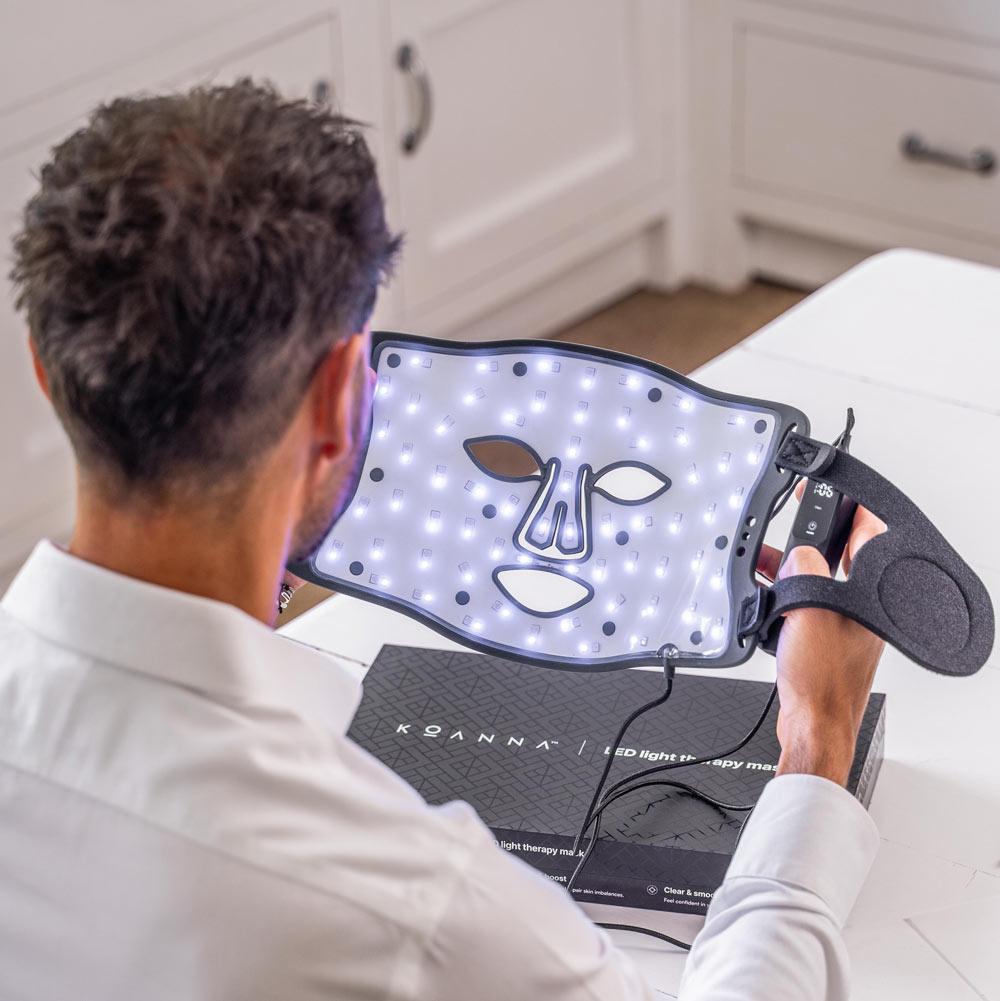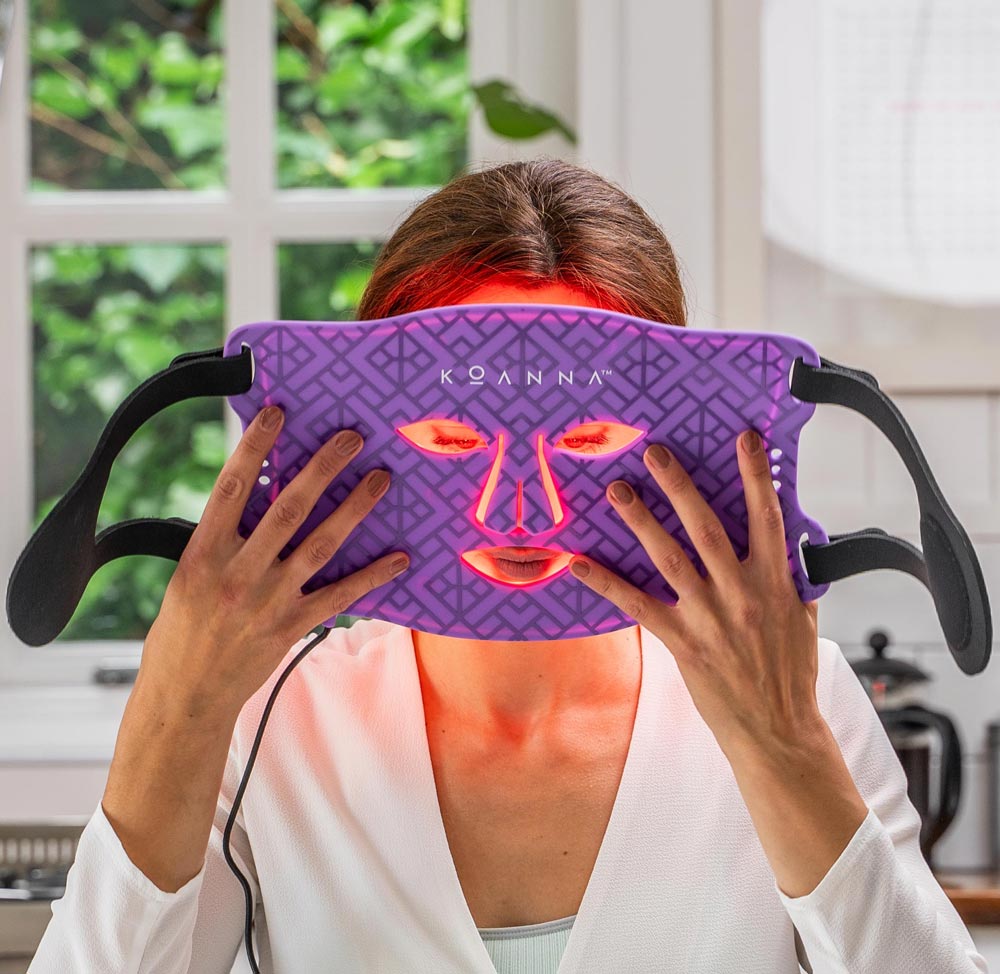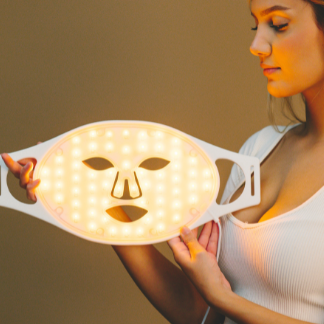Many of us have beauty and skincare goals that we're trying to achieve. But, with the stress of everyday life, and natural aging, achieving these goals can be challenging.
But, what if there was something you could use to reduce these effects? LED light therapy has become a hit in the skincare industry, but not many people still know what it is. Below, we’ll examine the wonder of LED light therapy and see how it could help you out.
What is LED Light Therapy?
LED is an acronym for “light-emitting diode.” There are different LED lights, and their impact on the skin has been measured for decades now.
Interestingly, LED lights were first studied (1) and developed by NASA as a means of conducting experiments on plant growth in space. However, the lights have shown significant promise in fighting inflammation and helping to boost the growth of tissue.
There are different wavelengths of LED lights, ranging primarily between red and blue. These lights penetrate the skin at various depths, triggering biological processes that improve skin healing and rejuvenation.
The therapy method is the same that’s in use in some of the best LED light therapy we see today.

Red LED Light
Red LED light has been proven to improve healing from scars and decrease the appearance of aging signs. It does this (2) by acting on fibroblasts - skin cells that aid their production of collagen.
As many know, collagen is important for the skin. It is a protein that helps to improve skin healing, but the body produces less of it due to aging. This is what causes aging signs. By boosting collagen production, red LED light improves skin healing.
Research (3) has also shown that red LED light can reduce skin inflammation.
Blue LED Light
Experts have studied blue LED lights for a while, and they believe that these lights help to reduce activity in the skin’s subcutaneous glands.
This reduction in activity causes the glands to reduce oil production, thus reducing the chances of your skin developing acne symptoms.
Blue light has also been found to kill a specific form of bacteria that causes acne. A 2009 study (4) showed that daily self-treatment using blue light for mild-to-moderate acne reduced the number of acne lesions significantly. Moreover, the study demonstrated a significant improvement of the subjects’ skin conditions.
Yellow LED Light
Also known as amber LED lights, yellow LEDs have a shallow penetration level which can help treat skin issues involving redness such as rosacea.
Not only that, but yellow light is also great for helping you get your glow back. This is due to the boost in lymphatic flow, which removes toxins and waste from the skin, and promotes anti-aging.
Uses of LED Light Therapy
So far, LED light therapy has been critical in treating issues such as:
- Scarring
- Skin inflammation
- Aging signs
- Acne
- Dermatitis
- Rosacea
- Psoriasis
- Skin dullness
- Eczema
- Sun damage
It is also important to note that LED light therapy is that it is perfectly safe and of course contains non of the harmful UV rays found in sunlight (5). So, if you’re looking for a safe skincare treatment to use regularly, this is for you.
People say it's difficult - or perhaps even impossible - to get clear skin and reduce your ageing signs. With LED light therapy, you now have a simple and safe way to achieve your skincare goals.
References
(1) Effect of NASA light-emitting diode irradiation on wound healing (https://pubmed.ncbi.nlm.nih.gov/11776448/)
(2) Low-level laser (light) therapy (LLLT) in skin: stimulating, healing, restoring (https://www.ncbi.nlm.nih.gov/pmc/articles/PMC4126803/)
(3) Low-level red LED light inhibits inflammation induced by unsaturated fatty acid in vitro (https://www.jaad.org/article/S0190-9622(17)31118-0/fulltext)
(4) Clinical Efficacy of Self-applied Blue Light Therapy for Mild-to-Moderate Facial Acne (https://www.ncbi.nlm.nih.gov/pmc/articles/PMC2923954/)
(5) Phototherapy with Light Emitting Diodes (https://www.ncbi.nlm.nih.gov/pmc/articles/PMC5843358/)




